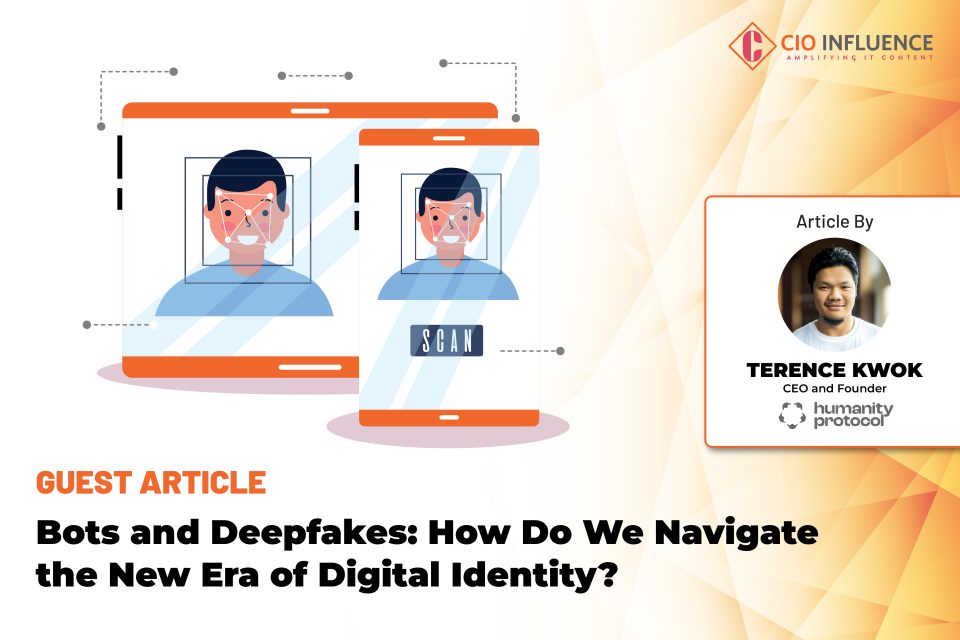The need for secure and trustworthy online interactions has never been greater. The internet is now interwoven into our daily lives, from social media to e-commerce, and protecting our identities while ensuring the integrity of online transactions has become a paramount concern.
This challenge is exacerbated by the rise of deepfake technology and AI-driven bots, which blur the lines between reality and manipulation, creating an environment where digital trust is difficult to establish and maintain. As these technologies advance, the consequences for online communication, security, and identity become increasingly significant.
In this context, the concept of digital identity attestation emerges as a powerful mechanism that not only enhances security but also fosters trust in online interactions. Identity attestation refers to the ability to verify that a user is a real person, rather than a bot or automated system, without compromising their privacy or revealing sensitive information.
This verification process could involve a combination of biometric data, zero-knowledge proofs, and other methods that ensure privacy while confirming human presence. Verifying our identity online offers a solution that addresses the growing concerns around maintaining trust online in a world where digital personas can be easily fabricated.
Also Read: CIO Influence Interview with Serge Lucio, VP and GM of Agile Operations Division at Broadcom
Combating Fraud and Abuse
Trust is the cornerstone of any successful online community or marketplace. Implementing identity attestation plays a vital role in building trust and credibility by ensuring that participants are genuine individuals with real identities.
The rise of bot-driven disinformation campaigns and fake accounts has eroded confidence in digital platforms. A study conducted by Yale University, Georgetown University, and New York University examined retweet bots on Twitter, analyzing 67.7 million impeachment-related tweets from 3.6 million users during the first impeachment of U.S. President Donald Trump in 2020.
Despite representing only 1% of users, bots generated over 31% of these tweets. Among QAnon conspiracy theory supporters, bots comprised nearly 10% of users, with pockets of isolated human-run accounts engaging regularly with these bots.
This study highlights how a small number of bot-driven accounts can distort public discourse, amplify misinformation, and ultimately undermine the authenticity of online platforms. The combination of automated social media accounts and today’s deepfake technology poses a significant threat to the integrity of online discourse and public perception.
Deepfakes, in particular, can be used to create highly convincing but entirely false audio and video content, which can be weaponized for political, financial, or reputational manipulation. By requiring users to demonstrate their humanity through various means such as biometric verification, Proof of Humanity significantly reduces the risk of malicious activities perpetrated by bots or fake accounts. This helps create a safer and more authentic online environment where genuine interactions can thrive.
Enabling Access to Opportunities
In many cases, access to online services, benefits, or opportunities may be contingent upon proving one’s identity online. By implementing robust identity attestation mechanisms, organizations can ensure that genuine individuals have equitable access to these resources while deterring malicious actors from exploiting loopholes or gaming the system.
One notable example occurred on April 4, 2024, when over 75% of transactions on the Solana blockchain failed due to bots seeking arbitrage opportunities. This congestion resulted in human users struggling to perform critical transactions, as the network was overwhelmed by bot activity. In such instances, Robust identity verification can help prioritize human actions, ensuring that real individuals, not bots, gain access to opportunities.
A Proof of Personhood system promotes fairness, inclusivity, and equal opportunity in the digital space, contributing to a more just and transparent society. With the digital world playing an ever-increasing role in education, employment, and social engagement, it is essential to create systems that ensure human users are not marginalized by automated processes.
Facilitating Responsible Innovation
As technology continues to evolve, so too must our approach to security and trust in the digital domain. Digital identity verification encourages responsible innovation by incentivizing the development of novel verification methods that prioritize user-centric principles such as privacy, security, and inclusivity. By embracing technologies such as blockchain, artificial intelligence, and biometrics, we can create more resilient and trustworthy online ecosystems that empower individuals while safeguarding their rights and interests. These technologies can offer layers of protection that ensure individuals’ privacy is maintained while still providing the necessary verification to prove humanity.
Ultimately, identity attestation represents an evolution in how we ensure security and trust in the digital age. By focusing on verifying the human essence of users while respecting their privacy and autonomy, we can create a safer, more authentic, and inclusive online environment for all.
Also Read: The Role of SmartNICs in AI-Centric Datacenters
[To share your insights with us as part of editorial or sponsored content, please write to psen@itechseries.com]


